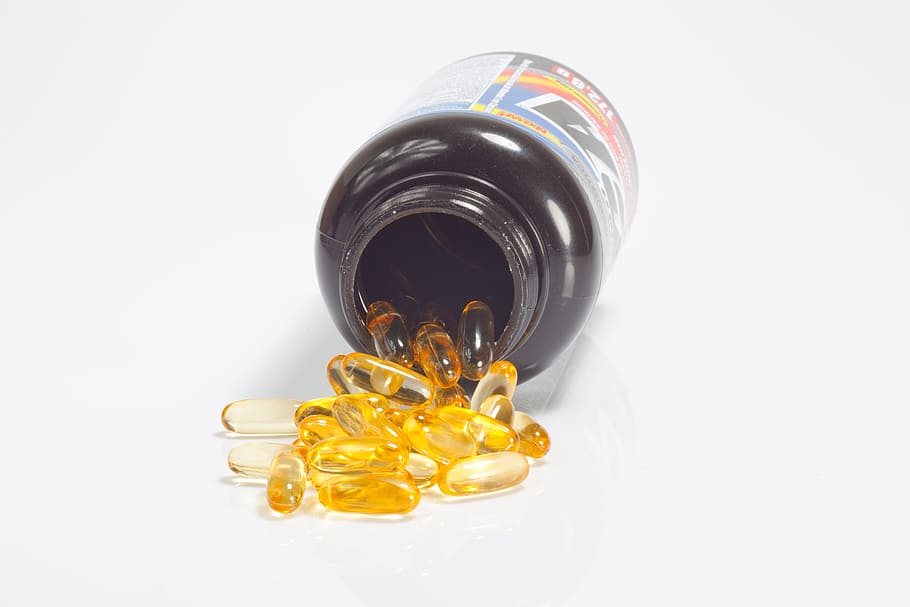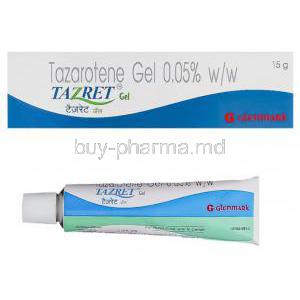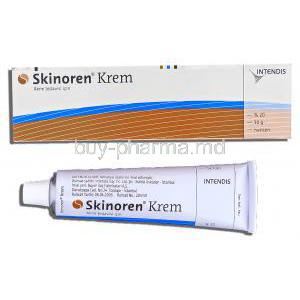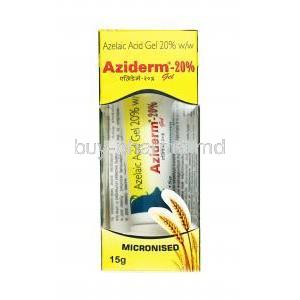Crotamiton
- I. Introduction
- II. What is Crotamiton?
- III. Uses of Crotamiton
- IV. How Crotamiton Works
- V. Dosage and Administration
- VI. Composition of Crotamiton
- VII. Side Effects
- VIII. Interactions
- IX. Warnings and Contraindications
- X. Careful Administration and Important Precautions
- XI. Special Populations
- XII. Overdose Management
- XIII. Storage and Handling Precautions
- XIV. Conclusion
I. Introduction
Brief Overview of Crotamiton
Crotamiton is a type of cream or ointment that is commonly used to help relieve skin irritations. It is particularly effective in treating conditions like scabies and itching.
Medical Conditions it Treats
The medicine is often prescribed for scabies, a skin infection caused by mites, as well as pruritus, which is also referred to as itching.
Importance of Informed Usage
A thorough knowledge of how Crotamiton works in the body, its potential side effects, and how it interacts with substances is crucial for effective and safe treatment.
II. What is Crotamiton?
Chemical Composition
Crotamiton has the formula C13H17NO. It is a substance known for having a hydroxyl and an amine group.
Classification of Drug
This specific medication belongs to the category. It can both combat ectoparasites and relieve itching sensations.
Regulatory Approval Status
Crotamiton has received approval from agencies such as the U.S. Food and Drug Administration (FDA) for treating certain skin conditions.
III. Uses of Crotamiton
Approved Uses
Treatment of Scabies
Scabies is a skin infestation caused by the mite Sarcoptes scabiei. The two most widely used treatments for scabies are permethrin cream and malathion lotion, both of which contain insecticides that kill the scabies mite 1. According to a review article published in the Journal of Parasitic Diseases, other effective treatments for scabies include benzyl benzoate, crotamiton, ivermectin, and sulfur ointment 2.
Management of Pruritus
Crotamiton is an antipruritic medication used to relieve itching and skin irritation caused by skin conditions such as itchy dermatitis and allergic rashes 12. According to DrugBank Online, crotamiton relieves itching by producing a counter-irritation. As crotamiton evaporates from the skin, it produces a cooling effect that helps to divert your body’s attention away from the itching 1.
Off-label Uses
Potential for Eczema Relief
Crotamiton is an antipruritic medication that relieves itching and skin irritation caused by skin conditions such as itchy dermatitis and allergic rashes. While there is no endorsement, some anecdotal accounts and smaller clinical studies indicate that crotamiton may positively impact managing the symptoms of eczema.
Role in Alleviating Dermatitis
Crotamiton is a medication that can relieve dermatitis, a broad term used to describe skin inflammation 1. It is usually used to treat pruritus (itching of the skin) caused by scabies or sunburn 2. Crotamiton works by killing the mites that cause scabies and also helps relieve itching related to scabies and other skin conditions 1. It belongs to two classes of drugs: scabicides and antipruritics 1.
Learn more:
IV. How Crotamiton Works
Mechanism of Action
Crotamiton works by altering the function of acetylcholine, a neurotransmitter that plays a role in skin perception.
Interaction with Skin Cells
It creates a combination with the cells of the skin keratinocytes, influencing how they react to irritating triggers.
Role in Neurotransmission
Crotamiton works by interacting with the nerves, which helps to reduce itching by affecting neurotransmission.
Duration of Effectiveness
The therapeutic effects of this treatment typically last for 6 to 10 hours after it has been applied.
V. Dosage and Administration
Recommended Dosage
For Adults
The typical approach is usually to apply the solution twice a day.
For Children
For patients, it is important to adjust the dosage and typically administer it once a day under the supervision of a medical professional.
Route of Administration
Topical Application Guidelines
You'll want to apply the medication across the areas that are affected.
How to Administer
Pre-application Precautions
It is advisable to cleanse the skin before applying anything to it.
Post-application Care
Try to avoid contact with any type of fabric that could potentially absorb the medication.
VI. Composition of Crotamiton
Active Ingredients
Crotamiton, as the ingredient, makes up a certain proportion of the overall volume.

Inactive Ingredients
Used additives include substances like propylene glycol and ethyl alcohol.
Available Formulations (Cream, Lotion)
You can find the drug in forms, such as creams and lotions.
VII. Side Effects
Common Side Effects
Skin Irritation
Redness and mild irritation are customary.
Mild Burning Sensation
It's common to experience a harmless burning sensation after applying the product.
Rare but Severe Side Effects
Allergic Reactions
Allergic reactions that trigger anaphylaxis, although uncommon, require urgent medical attention.
Symptoms of Overdose
Using much of this product could lead to toxicity in the body.
VIII. Interactions
Drug Interactions
Risk with Topical Steroids
Corticosteroids have the potential to make the skin thinner, which can become risky when used in combination with Crotamiton.
Combining with Antihistamines
Using antihistamines concurrently requires monitoring as there may be potential interactions.
Food and Lifestyle Interactions
During your treatment with Crotamiton, you should refrain from using alcohol or other substances that may irritate the skin. By understanding Crotamiton, both patients and healthcare providers can actively participate in a more knowledgeable and, therefore, safer and more effective therapeutic journey.
IX. Warnings and Contraindications
General Warnings
It is essential to be familiar with the contraindications and precautions of Crotamiton when using it. Ignoring these warnings could lead to effective treatment or unwanted side effects.
Contraindications
Hypersensitivity
Crotamiton should be avoided by individuals who have a hypersensitivity, to the drug or any of its components, as it may lead to an allergic reaction.
Open Wounds and Infections
It is advised to avoid applying the product on wounds or infected skin areas as it may worsen these conditions.
X. Careful Administration and Important Precautions
In Case of Preexisting Skin Conditions
If you have any existing skin conditions, it's best to consult with a healthcare professional, for advice.
Monitoring of Side Effects
It is essential to monitor for any potential side effects, such as redness and itching to evaluate whether the drug is still appropriate, for ongoing use.
When to Stop Use and Consult a Physician
If you experience itching or a rash signs of an allergic reaction or if your symptoms persist beyond a certain period, please stop using the product and seek immediate medical attention.
XI. Special Populations
Administration to Elderly
Adjustments in Dosage
It might be necessary to consider adjusting the dosage for elderly individuals due to the possibility of reduced metabolic clearance.
Risk of Skin Thinning
Be careful when dealing with this group of people as they are more prone to having thin skin.
Administration to Pregnant Women and Nursing Mothers
Safety Profile
The full effects of Crotamiton, on development are not yet wholly understood, so it is recommended to only use this medication if absolutely necessary.
Alternatives if Needed
Evaluating the potential risks and benefits before proceeding while also exploring alternative treatment options is essential.
Administration to Children
Age-specific Dosage
When prescribing medication for children, it is crucial to calculate the dosage by taking into account their body weight and surface area.
Pediatric Safety Guidelines
Before giving it, make sure to conduct studies, on children to ensure its safety and effectiveness.
XII. Overdose Management
Symptoms of Overdose
Common symptoms that can be observed include feelings of nausea, episodes of vomiting, and the possibility of experiencing nervous system depression.

Emergency Procedures
If someone overdoses, it is crucial to seek medical help. This may involve procedures like lavage.
Long-term Consequences
Excessive drug intake can lead to harm to the liver as well as other potential complications throughout the body.
XIII. Storage and Handling Precautions
Ideal Storage Conditions
Keep Crotamiton stored in a sealed container at average room temperature, ensuring it is shielded from dampness and direct exposure to sunlight.
Expiry and Disposal Guidelines
Make sure to adhere to the expiration date of the medication and follow the local guidelines for appropriate disposal.
XIV. Conclusion
Summary of Key Points
The article aims to provide an overview of Crotamiton, covering its pharmacological characteristics, contraindications, and specific populations where it is used.
Importance of Consulting with Healthcare Providers for Personalized Medical Advice
It is highly recommended to consult with healthcare professionals to receive medical advice, for accurate diagnosis and suitable treatment. By following these guidelines you can maximize the effectiveness of Crotamiton while minimizing any risks.




















